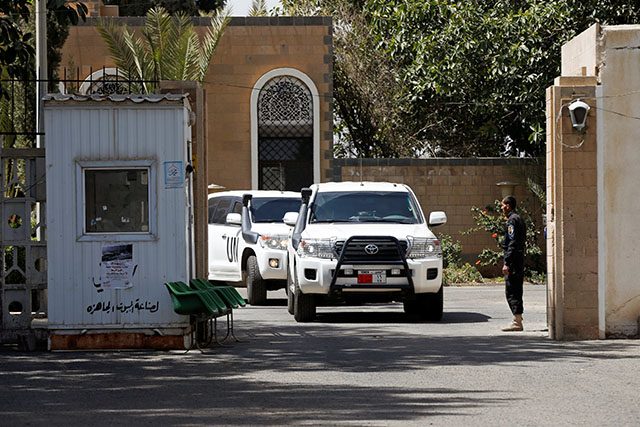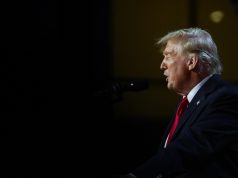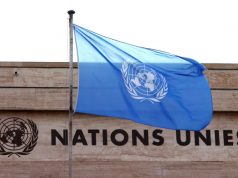
DUBAI — Amnesty International accused the United Arab Emirates on Wednesday of diverting arms supplied by Western and other states to “unaccountable militias accused of war crimes” in Yemen.
The UAE and Saudi Arabia are leading a military coalition, including local forces drawn from various Yemeni factions, that is trying to restore the internationally recognized government ousted from power in 2014 by the Iranian-aligned Houthi group.
“Emirati forces receive billions of dollars’ worth of arms from Western states and others, only to syphon them off to militias in Yemen that answer to no-one and are known to be committing war crimes,” Amnesty said in a statement.
“The proliferation of these fighting forces is a recipe for disaster for Yemeni civilians who have already been killed in their thousands, while millions more are on the brink of famine as a direct result of the war,” the human rights group said.
The UAE government media office did not immediately respond to a request for comment on the Amnesty statement.
The UAE has trained and armed thousands of Yemeni fighters, mostly in southern provinces and western coastal areas, as part of the forces battling the Houthis, who control most urban areas including the capital Sanaa and the main port of Hodeidah.
Western nations, many of which provide weapons and intelligence to the coalition, have pressed for an end to the almost four-year war after the murder of Saudi journalist Jamal Khashoggi increased scrutiny of Saudi activities in the region.
Rights groups have accused both sides in the conflict of committing possible war crimes, including abuse of detainees, a charge the warring parties have denied.
Amnesty called on states to suspend arms sales to the warring parties until there is “no longer a substantial risk” they may be used to breach humanitarian or human rights law.
The conflict is widely seen in the region as a proxy war between Sunni Muslim Saudi Arabia and Shi’ite Muslim Iran. The Houthis deny charges that Iran supplies them with weapons and say their revolution is a popular one against corruption. —Reporting by Lisa Barrington









